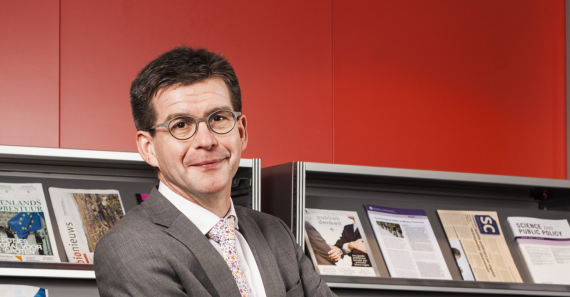Matters of integrity in science are hard to explain in terms of ‘good’ and ‘bad’, clarified Barend van der Meulen. The chair of the Committee Scientific Integrity (CWI) of the WUR regularly sees scientific articles being withdrawn because the results were insufficiently substantiated. In most of those cases, things go wrong despite good intentions, says Van der Meulen.
Lego
Research could also end up in a societal conflict of interests, stated Van der Meulen, especially in the case of the WUR that promotes ‘science for impact’. Scientific questions could suddenly be put as integrity issues. This was indeed what seemed to be going on in the example case that the fifty attendees could play with during the workshop. That case started realistically: the Lego company wanted to create sustainable Lego blocks using palm oil instead of fossil oil. In the imaginary case, a Wageningen institute is allowed to make a life cycle analysis (LCA) to investigate whether Lego blocks made from palm oil are more sustainable than building blocks made from oil. The imaginary research is financed by Lego and the Malaysian Palm Oil Council, the representative of palm oil producers.
Leaked
First question to be asked the attendees: do you accept this research project? A great majority accepted the project, but set conditions on the research to be able to perform such an LCA. However, the confidential interim report is leaked to the media, with the message that palm oil Lego is more sustainable. What should you do as a researcher? You should quickly discuss with your co-researchers and management, and immediately distantiate yourself from the leaked report, was the advice from the audience, because it could otherwise seem as if the WUR was conforming with the leaked conclusions.
Criticism
Still, it could happen that stakeholders and other researchers start criticising the interim report and the research methods in the media. No two LCA are alike, the approach is incomplete and that creates bias the media say. This should rather be a scientific discussion, but the criticism ends up in the frame of integrity and fraud. Researchers often have no influence on that image, but it is vital that they be aware of such risks at the start of the research project, states Van der Meulen. Are there clear agreements on methodology and reporting? But also: how honest are your clients and partners in dealing with research information? His take-away message: ‘You require the right conditions to work honestly.’

